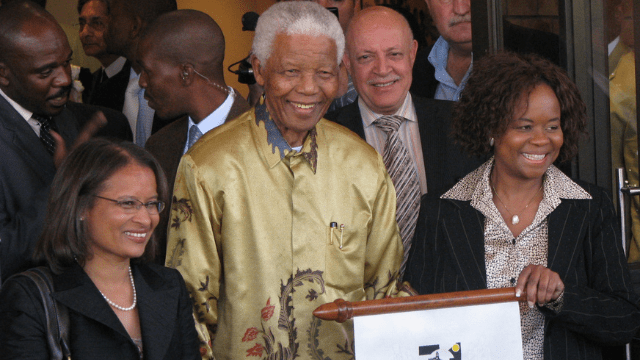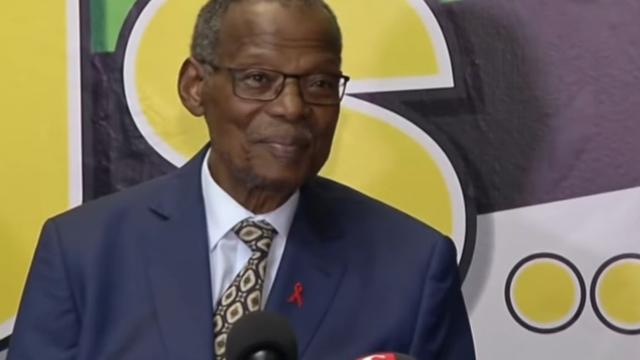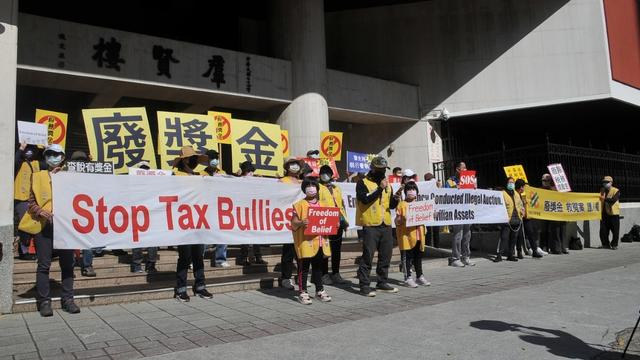The South African leader admitted his mistakes and learned from his errors—something that seems more difficult in the Taiwanese context.
by Daniela Bovolenta*
*A paper presented at the webinar “Tai Ji Men: The Road to Freedom,” co-organized by CESNUR and Human Rights Without Frontiers on July 18, 2022, United Nations Nelson Mandela Day.

In the recent conference of CESNUR, held at Université Laval in Quebec City, Canada, during the last month of June, Lily Chen, a Tai Ji Men dizi (disciple) quoted Tzu Kung (520–456 BCE), a disciple of Confucius. Tzu Kung reportedly said that, “The gentleman’s errors are like an eclipse of the sun and moon, in that when he errs the whole world sees him doing so, and when he reforms the whole world looks up to him.”
This quote indicates that the great statespersons are those capable of admitting their mistakes and rectifying them. In 2011, British historian Stephen Ellis (1953–2015), a leading scholar of South Africa, provided definitive evidence that in the 1960s and beyond Nelson Mandela (1918–2013) had been a high-ranking member of the South African Communist Party, which had close ties to the Soviet Union. Most scholars regarded Ellis’ evidence as conclusive, but the debate was closed when in 2015 Russian historian Irina Filatova brought to light a document in the Soviet archives confirming that Mandela had indeed been a member of the South African Communist Party.
The question matters because in later years Mandela repeatedly denied he had ever been a Communist, although he admitted he had Communist friends such as Cuban President Fidel Castro (1926–2016). He also continued to appear at events of the South African Communist Party, whose contribution to the anti-apartheid struggle in South Africa he acknowledged.

Mandela’s statements can be explained by the delicate international position of South Africa. They were false if they meant that Mandela had never been a member of the South African Communist Party. They might have been true if they indicated that Mandela, an avid reader of Communist texts, had never been totally persuaded by the ideology, or perhaps only when he was a young man.
This question, however, should be addressed by looking at Mandela’s live as a whole. Starting with reflections he made in jail in the 1970s, Mandela came to a criticism of the Soviet Union and Communism, warned against adopting a Communist model in a post-apartheid South Africa, opposed economic socialism, and praised what for the Communists is the bourgeois style of democracy.
Many South African Communists had attacked the Zulu chief Mangosuthu Buthelezi as a traitor of the anti-apartheid cause for his staunch anti-Communism and moderate attitudes. When apartheid ended and he became President of South Africa, however, Mandela reached out to Buthelezi and appointed him Minister of Home Affairs, a position he held for more than ten years.

Mandela’s attitude to transitional justice was also different from the Communists’. While the latter wanted a vindictive prosecution of those responsible for the apartheid, Mandela’s Truth and Reconciliation Commission was granted extensive powers of amnesty. It also investigated crimes committed during the liberation struggle by both the South African Communist Party and Mandela’s own organization, the African National Congress.
Critics on the left even called Mandela as President an “anti-Communist,” although his evolution may be better viewed as a willingness to consider different points of view, and learn from the mistakes of other countries as well as from his own errors. This made Mandela the leading statesperson whom the Mandela Day celebrates.
Notwithstanding the quote I mentioned in the beginning, attributed to a disciple of Confucius, there are cultural differences between South Africa and Taiwan. Recognizing one’s mistakes is traditionally seen as part of African wisdom. On the contrary, “saving face” is important in Chinese culture and, as Massimo Introvigne has observed, may make it more difficult for Taiwanese authorities to admit the mistakes and illegal acts that characterized the Tai Ji Men case since its very beginning.

Hwang Kwang-Kuo, a professor emeritus at Taiwan National University and a leading scholar of Chinese psychology, has argued that “saving face” is not only an individual attitude. It is a historical feature of Chinese bureaucracy, still strong in Taiwan, where superiors are expected to “save the face” of their employees, and employees are expected to “save the face” of their superiors.
Perhaps it is this culture that prevents authorities in Taiwan from admitting the obvious, i.e., that the Tai Ji Men case was born from an illegal prosecution punctuated by almost daily violations of law and human rights, this original sin determined the subsequent tax harassment, and new illegal acts were committed by greedy tax and enforcement officers. Yes, it would take some bravery to admit all this now. However, history praises leaders such as Mandela who were able to admit and rectify their mistakes. History is less kind toward those who privilege saving face and refuse to admit their errors.
Source: Bitter Winter

